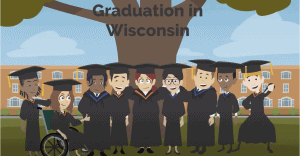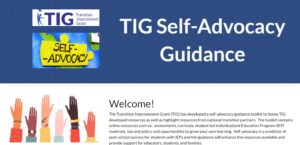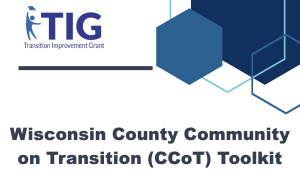Please note TIG will be updating the Self-Advocacy Suite.
Stocker Elementary School
Starting by establishing and teaching expectations
Implementation of an equitable, multi-level system of supports often appears to be a cyclical experience. Many times, schools begin by building a strong universal level of supports. This was the approach taken by Stocker Elementary in Kenosha. Their early work centered on establishing and teaching common expectations for the school and in all areas of the building. “The first handful of years was about building that system of data [to create] tiered support for students,” April Nelson, Stocker’s principal said.
After several years, Stocker’s leadership team felt that their universal level was robust. They began introducing selected and intensive supports, including Check In Check Out (CICO), Social Academic Instructional Groups (SAIG), and mentoring.
Once all of the system pieces were in place, the team noticed a trend in their data. Students were coming back to CICO after a short period of having been successful. Additionally, the number of students needing CICO also increased, leading leadership to believe there was a need that wasn’t being met at the universal level.
Stocker’s team knew the answer was not to throw away their universal expectations, but rather, adjust the system to be more proactive. They decided the best solution would be to teach students how to manage and regulate their emotions at the universal level. Using monthly professional development, all staff built skills in social-emotional learning (SEL) and developed a common understanding of language around SEL. Stocker created monthly themes based on topics connected to the social emotional continuum. Discussion questions were developed for classroom teachers’ use. Themes were promoted on the school’s morning news program and communicated to families through a newsletter.
Incorporating social-emotional learning at the universal level has had a broad impact, according to Stocker’s staff. The number of students needing the additional support of CICO was reduced. It has also positively affected the school culture. Students are helping each other with social-emotional language and it’s helped build community, Principal Nelson said. Counselor Kaitlyn De Bruin added that building resiliency skills has been really helpful for students. Stocker’s data tells a comparable story: this system adjustment played a role in reducing suspensions and office discipline referrals.

The first handful of years was about building that system of data [to create] tiered support for students. Principal April Nelson


Notifications




 TIG Self-Advocacy Guidance Google Site
TIG Self-Advocacy Guidance Google Site 
 Wisconsin County Community on Transition (CCoT) Toolkit
Wisconsin County Community on Transition (CCoT) Toolkit